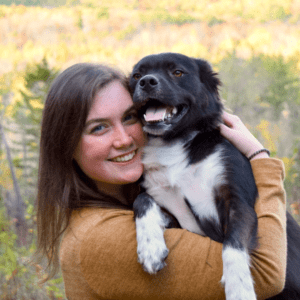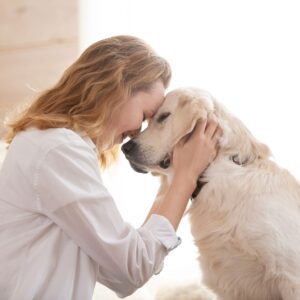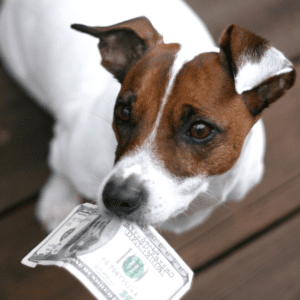Living in a human home, in human society is not innate to your dog, and so if they are not taught basic training, they are bound to find the world a confusing and frustrating place, and thus may exhibit unmanageable, and sometimes uncontrollable behaviours that could make both of your lives very stressful.
That said, it is very important to remember that your dog is not a human. You may love them as much (may be sometimes more!) than people but disregarding their needs and desires as a canine species could ultimately fail them.
Training is individualistic to each dog. Puppies will require different training to fully grown dogs. Rescue dogs will need an understanding of their background context, however if this isn’t possible (if your dog was a stray etc) you must at least acknowledge and bear in mind that they have a context, and it will be important for you to take note of their idiosyncrasies in order to help them get the most out of their training.
If you know the breed (or breeds) of your dog, you should familiarise yourself their characteristics. Different breeds act in different ways, and they are driven by different things. Historically, dogs have generally been bred for purpose, and so your understanding of what drives them as well as things that may trigger them is essential to tailoring your dog training journey. For example, scent hounds such as Beagles and Daschunds love to follow scent trails and so you can utilise this trait to both understand how to stimulate them, and also how to reward them.
Similarly, part of having a well-trained dog is knowing how to keep a lid on these instincts, and not let them manifest into destructive behaviours. For example, if you have a terrier, you need to be mindful that they have been bred to locate and kill vermin, so don’t be surprised if you don’t do something to channel this impulse and your sofa gets ripped to pieces!
Once you have a ground knowledge of your dog’s age, context, breed, and their personality, it’s time to begin your training.
The first thing you need to do is to train yourself! Knowing what you can do, and, more importantly, how you can be, is essential to building that all-important trusting bond with your dog. For example:
- Learn to be patient. Dogs are like emotional sponges, what they see from you they often mimic, so you must always stay calm and patient when training your dog. Make sure you are in the right frame of mind, or you may not only waste your time, but your training could have the adverse effect.
- Method matters! Training must be positive, and reward based. Aversive training techniques such as prong or shock collars, shouting, physical punishment and other “dominance” approaches are widely understood to cause psychological damage to your dog. Dog training is hard work and can be frustrating at times, but you must never react in a negative way if things aren’t going well. If your dog is having a bad day and you feel yourself getting wound up, it’s time to stop and revisit another time.
- Minimise distractions. This should be one on one time with your dog, who will be very excited to have you all to themselves. Control your environment as much as you can to make sure nothing is going to distract them, and they can focus on your session. This includes sounds, smells, toys, other people and other dogs.
- Try and end the session with something your dog already knows how to do, it will make them feel good and positively associate your next training session.
Depending on the stage of your dog’s life, and the situation you find yourself in, all or some of the following may be beneficial to you and your dog.
Puppy parties
These are sessions often held by your local vet, where new puppies can meet in a controlled environment with a professional on hand. Whilst they are very young, it is important for them to be well socialised with both humans and other dogs. These are also a good opportunity for new dog owners to chat with other new dog owners, share experiences, and to discuss any concerns you have with your vet. The better socialised your dog is, the less likely it is that they will have problems with reactivity in the future.
Puppy training classes
Puppy training classes are the next are the next step for your pup; these offer much more structure and teaching. Professional dog trainers often offer these as small group sessions. The trainer will give you information on key elements of training, demonstrate the required behaviours and give you homework to do that will help to reinforce their newly learnt skills. It’s useful to not only work with a professional on the basics, but also to be around other people who are doing the same thing as you.
Dog trainers
Dog trainers will also carry out 1-2-1 puppy training and dog training sessions. These individualised sessions are extremely beneficial as your trainer will be able give you and the dog their undivided attention and will also impart their essential knowledge we talked about earlier on things such as age and breed related context.
Dog behaviourist
There will be some crossover with dog trainers and dog behaviourists, and it depends on your situation as to who or what your dog will need. Dog behaviourists often work on vet referrals and are geared more towards dogs who have specific needs or problems to overcome, such as aggression, separation anxiety, compulsive behaviours and reactivity. They will work with you to understand and identify traumas and triggers that may cause problematic behaviours and come up with a bespoke plan to get them on the road to recovery.
The better your dog’s training, the better their quality of life. Training not only allows you to build up the trust with them to enjoy and make the most of your home and being out in social spaces, but it will also strengthen your bond together, which is absolutely priceless.
Sources:
Journal of Veterinary Behaviour









Add a comment